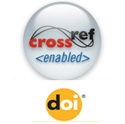|

|
|
|
|
Yazar
|
:
Senar ALKIN ŞAHİN
- Nihal TUNCA & Aytunga OĞUZ
|
|
|
Türü |
:
|
|
Baskı Yılı |
:
2015
|
|
Sayı |
:
4
|
|
Sayfa |
:
161-178
|
|
DOI Number: |
:
|
| Cite : |
Senar ALKIN ŞAHİN - Nihal TUNCA & Aytunga OĞUZ, (2015). SINIF ÖĞRETMENLERİNİN ÖĞRENEN ÖZERKLİĞİNİ VE ELEŞTİREL DÜŞÜNMEYİ DESTEKLEME DAVRANIŞLARI. Route Education and Social Science Journal , 4, p. 161-178. Doi: 10.17121/ressjournal.180.
|
|
8142 3274
|
Özet
Bugün ilköğretim basamağında gerçekleştirilen eğitim reformlarıyla birlikte, istenen öğrenci özellikleri değiştiği gibi öğretmene yüklenen rol ve sorumluluklar da değişmektedir. Öğrencilerden etkin olmaları, öğrenme sorumluluklarını üstlenmeleri ve etkili düşünmeleri beklenirken; öğretmenlerden ise öğrenmenin ve düşünmenin desteklendiği sınıf ortamları oluşturmaları beklenmektedir. Bu ortamlarda öğretmenlerin, öğrencilerin öğrenme sorumluluğunu üstlenmelerine, gereksinimlerini belirlemelerine, öğrenmeyle ilgili kararlar vermelerine ve öz değerlendirme yapmalarına yardımcı olmaları gerekmektedir. Bununla birlikte, öğretmenler, sınıflarda, ilişki kurma, neden-kanıt arama, üst düzey sorular sorma, doğruyu arama gibi eleştirel düşünme eğilim ve becerilerini desteklemekten de sorumludurlar. Bu araştırmanın amacı, sınıf öğretmenlerinin öğrenen özerkliğini destekleme davranışları ile eleştirel düşünmeyi destekleme davranışları arasındaki ilişkinin belirlenmesidir. Ayrıca araştırmada, öğretmenlerin öğrenen özerkliğini ve eleştirel düşünmeyi destekleme davranışlarının çeşitli değişkenlere göre farklılaşıp farklılaşmadığı da incelenmiştir. İlişkisel tarama modelinde desenlenen araştırmanın örneklemi, İstanbul ili Arnavutköy ilçesinde görev yapan 174 sınıf öğretmeninden oluşmaktadır. Araştırmanın verileri, “Öğrenen Özerkliğini Destekleme Ölçeği” ve “Eleştirel Düşünmeyi Destekleyen Öğretmen Davranışları Envanteri” ile toplanmıştır. Verilerin analizinde, betimsel istatistikler, t testi, Anova ve Pearson Momentler Çarpımı Korelasyon Katsayısı kullanılmıştır. Araştırmada sınıf öğretmenlerinin öğrenen özerkliğini destekleme davranışlarını orta düzeyde; eleştirel düşünmeyi destekleme davranışlarını ise orta düzeyin üstünde gösterdikleri tespit edilmiştir. Öğretmenlerin öğrenen özerkliğini destekleme davranışları kıdeme göre, yalnızca duygu ve düşünce desteği boyutunda farklılaşırken; eleştirel düşünmeyi destekleme davranışları, hiçbir alt boyutta, kıdeme göre farklılaşmamaktadır. Sınıf öğretmenlerinin hem özerkliği hem de eleştirel düşünmeyi destekleme davranışlarını gösterme düzeyleri, her iki değişkenin hiçbir alt boyutunda, “girdikleri sınıflardaki ortalama öğrenci sayısına” ve “yapılandırmacı yaklaşım konusunda hizmet içi eğitime katılma durumlarına” göre anlamlı olarak farklılaşmamaktadır. Araştırmada, öğrenen özerkliğini destekleme davranışları ile eleştirel düşünmeyi destekleme davranışları arasında pozitif ve orta düzeyde anlamlı ilişkiler olduğu belirlenmiştir.
Anahtar Kelimeler
Öğrenen özerkliği, öğretmenin özerklik desteği, eleştirel düşünmeyi destekleyen davranışlar, sınıf içi öğretmen davranışları, öğrenme ortamı.
Abstract
Together with the education reform carried out in elementary level, the required student characteristics have undergone some changes in association with the changes seen in roles and responsibilities assigned to the teacher. While students are expected to assume responsibilities for their own learning and develop effective learning strategies, teachers are expected to construct classroom environments supportive to learning and thinking. In such environments, teachers should help students to take their learning responsibility, determine their own needs, make their own decisions related to their learning and conduct self-evaluation. Moreover, teachers are also taken to be responsible for supporting critical thinking tendencies and skills such as the creation of relations, seeking cause-evidence, asking higher order questions and looking for the truth. The purpose of the present study is to determine the correlation between the classroom teachers’ supportive behavior towards learner autonomy and their supportive behaviors towards critical thinking. Furthermore, the present study explores whether the teachers’ supportive behaviors towards learner autonomy and critical thinking vary depending on some certain professional features. The sampling of the present study designed in line with the relational survey model is composed of 174 classroom teachers working at schools in Arnavutköy province of İstanbul. The data of the present study were collected through “Learner Autonomy Supporting Scale” and “Inventory of Teacher Behaviors Supportive of Critical Thinking”. In the analysis of the data, descriptive statistics, t-test, ANOVA and Pearson Product-Moment Correlation Coefficients were employed. In the study, it was found that the classroom teachers exhibited supportive behaviors towards learner autonomy at the medium level and supportive behaviors towards critical thinking at a level higher than medium. While the teachers’ supportive behaviors towards learner autonomy vary significantly depending on length of service in teaching profession at the sub-dimensions of support for emotions and thoughts, their supportive behaviors towards critical thinking do not vary depending on any sub-dimension of length of service in the profession of teaching. The classroom teachers’ supportive behaviors towards learner autonomy and critical thinking do not significantly vary depending on any sub-dimension of these two variables “the average number of students in the class” and “their state of having participated in any in-service training given on constructivist approach”. A positive and moderately significant correlation was found between the teachers’ learner autonomy supportive behaviors and critical thinking supportive behaviors.
Keywords
Learner autonomy, teachers’ autonomy support, critical thinking supportive behaviors, in-class teach
|
|
